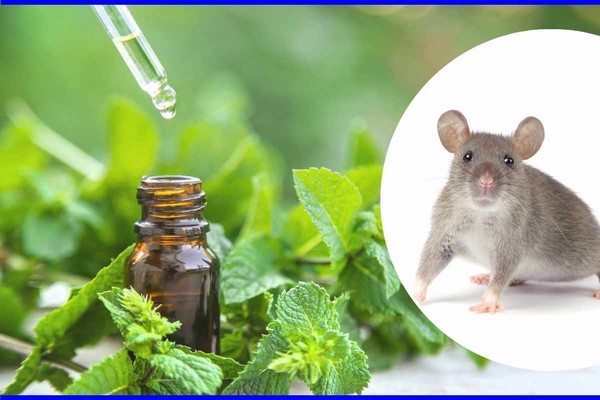In the eternal battle between humans and rodents, the quest for effective and humane methods to rid homes of mice continues. While traditional traps and chemical deterrents have been go-to options, there’s a growing interest in natural remedies that are safe for both humans and the environment. Among these alternatives, peppermint oil has emerged as a popular choice, touted for its purported ability to repel mice while offering a pleasant aroma to humans. But does this natural remedy truly stand up to the challenge? Let’s delve into the science behind peppermint oil’s efficacy in getting rid of mice.
Understanding the Problem: Mice infestations are a common household nuisance, posing risks to health, property, and peace of mind. These small rodents are not only adept at squeezing through tiny openings but also prolific breeders, making them challenging to eradicate once they’ve established a presence in a home. Conventional methods such as traps and poisons may effectively eliminate individual mice, but they often fall short in preventing reinfestation and may raise concerns about safety, particularly in homes with children and pets.
The Promise of Peppermint Oil: Enter peppermint oil, a natural essential oil derived from the peppermint plant (Mentha × piperita). Beyond its culinary and aromatherapy uses, peppermint oil has gained attention for its purported ability to deter mice. Proponents of this method claim that the strong scent of peppermint overwhelms the rodent’s olfactory senses, making the environment inhospitable and driving them away from treated areas.
Scientific Evidence: While anecdotal evidence abounds regarding peppermint oil’s efficacy in repelling mice, scientific research on the subject is limited but promising. A study published in the “International Journal of Molecular Sciences” in 2011 investigated the repellent effects of essential oils, including peppermint oil, on rodents. The researchers found that peppermint oil exhibited significant repellent activity against mice, suggesting its potential as a natural alternative for pest control.
Furthermore, another study published in the “Journal of Applied Ecology” in 2018 explored the use of peppermint oil in deterring mice in agricultural settings. The results indicated that peppermint oil formulations could effectively reduce mouse activity in grain storage facilities, highlighting its practical applicability beyond domestic settings.
How to Use Peppermint Oil Effectively: To harness the potential of peppermint oil for mouse control, proper application is key. Here are some tips for using peppermint oil effectively:
- Concentration: Opt for high-quality, pure peppermint oil with a high concentration of menthol, the active compound responsible for its repellent properties.
- Application: Dab cotton balls or cloth strips with peppermint oil and place them strategically in areas prone to mouse activity, such as entry points, cabinets, and dark corners.
- Refresh Regularly: Reapply peppermint oil every few days or as needed to maintain its potency, as the scent may dissipate over time.
- Combine Methods: Enhance the effectiveness of peppermint oil by complementing it with other preventive measures, such as sealing cracks and gaps, storing food in airtight containers, and maintaining cleanliness to eliminate potential food sources.
- Monitor and Adjust: Monitor mouse activity closely and adjust the placement of peppermint oil as necessary to target areas of high traffic or nesting.
In the quest for a natural, eco-friendly solution to mouse infestations, peppermint oil emerges as a promising contender. While further research is warranted to fully elucidate its efficacy and optimal application methods, existing evidence and anecdotal experiences suggest that peppermint oil holds considerable potential as a mouse repellent. By incorporating peppermint oil into their pest management arsenal and adopting proactive preventive measures, homeowners can take proactive steps towards creating a mouse-free environment without compromising safety or sustainability.










